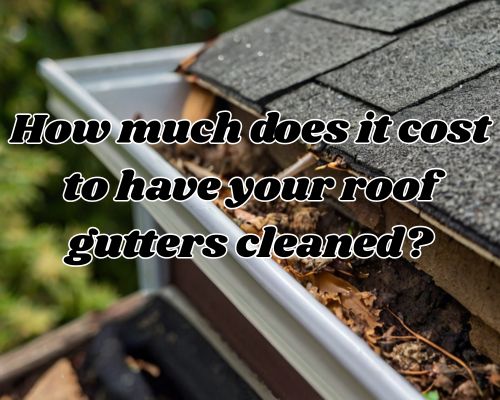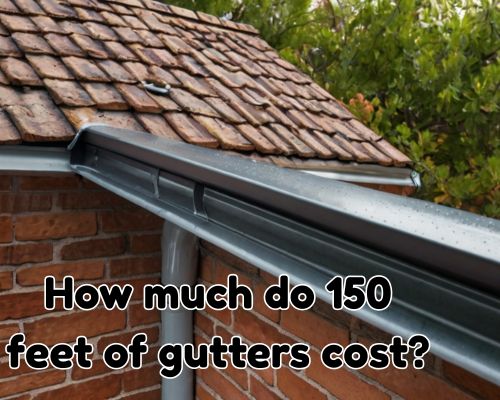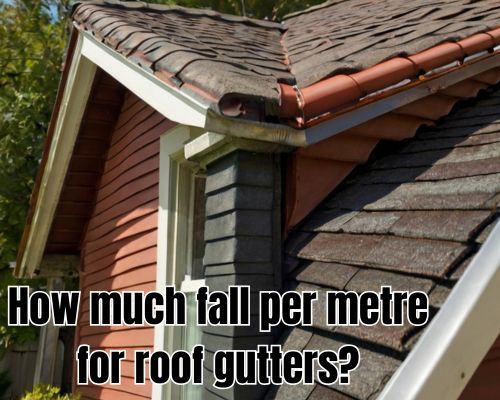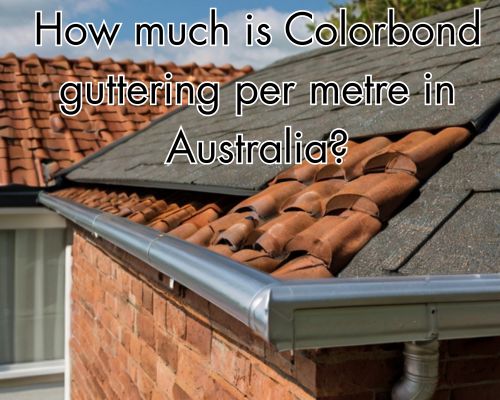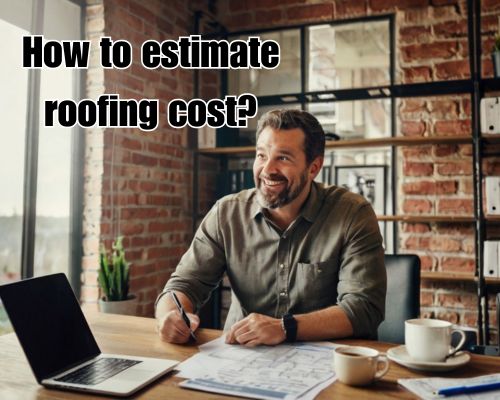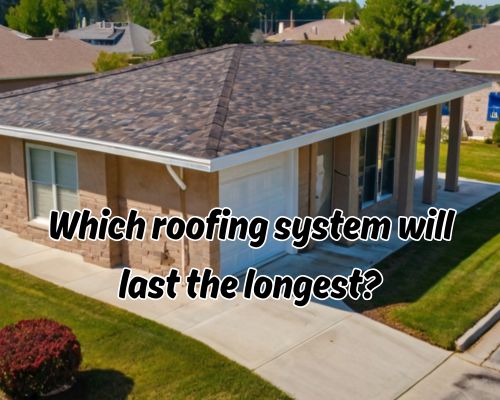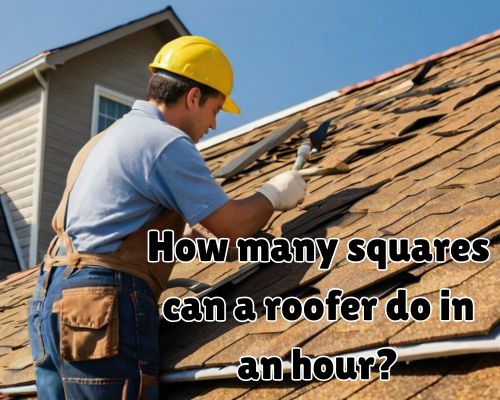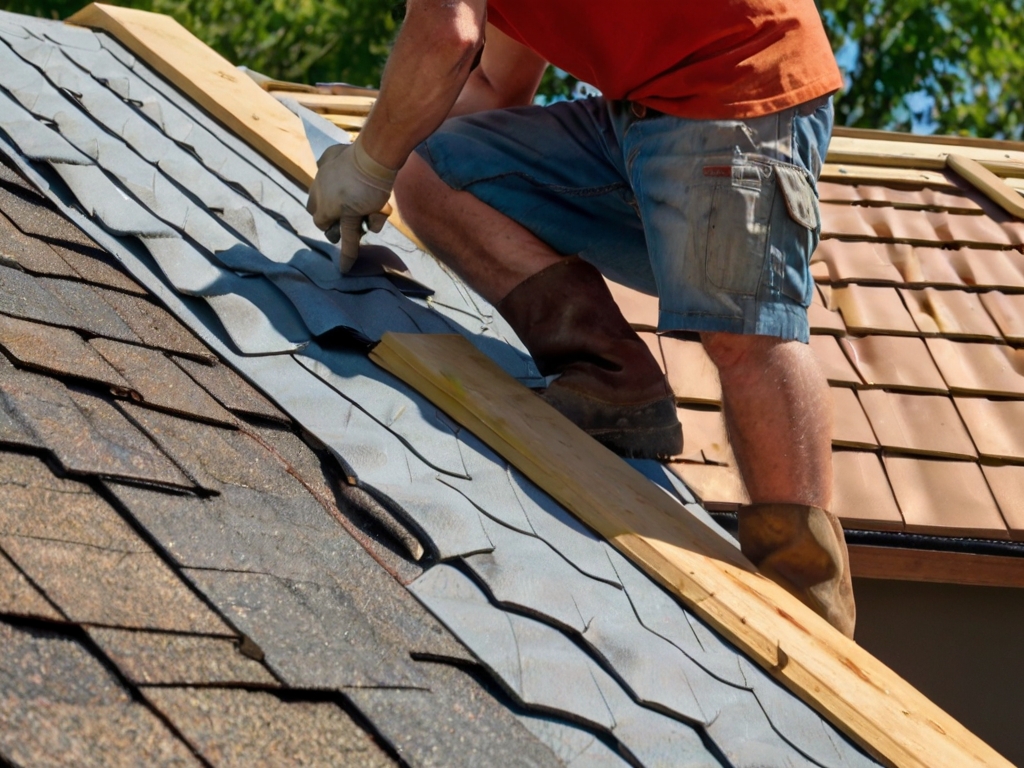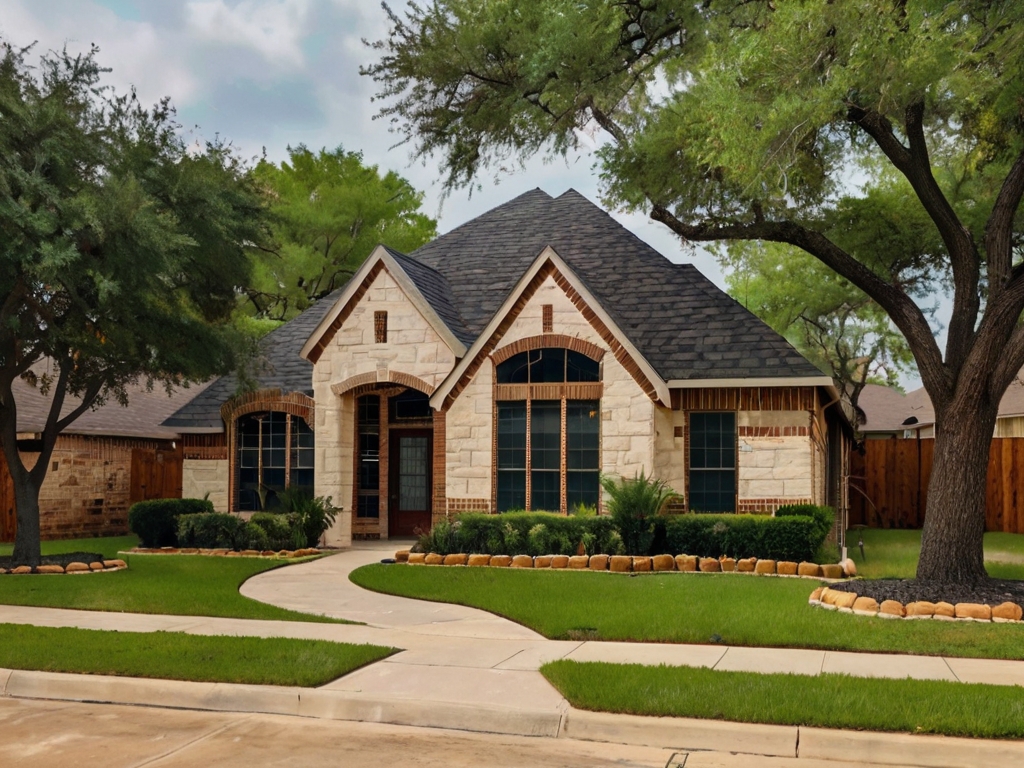Gutter maintenance might not top your weekend wish list, but it plays a crucial role in preserving your home’s foundation and preventing costly water damage—especially in areas like West Palm Beach, Florida, where subtropical rains and seasonal storms are common. One of the most frequently asked questions by homeowners is: How long does gutter cleaning take? The answer depends on a range of factors, from the size of your home to the local climate conditions, type of debris buildup, and whether you’re using professionals or DIY tools.
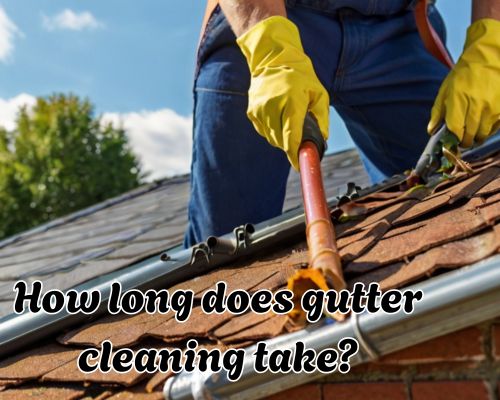
With Mike Owen of Gutters of West Palm Beach, we’ll break down typical gutter cleaning timeframes, what variables affect duration, local considerations in Palm Beach County, and how professional gutter cleaners streamline the process for optimal efficiency.
⏱️ Average Time It Takes to Clean Gutters
For most residential properties in West Palm Beach, gutter cleaning takes anywhere between 30 minutes to 2 hours. That range varies significantly depending on:
- Square footage of the home
- Number of stories
- Gutter length and type
- Clog severity
- Use of equipment or manual methods
A single-story home with minimal tree cover may take 30–45 minutes, while a two-story house with dense foliage and neglected gutters could stretch beyond 2 hours.
🌴 Unique Factors in West Palm Beach That Influence Gutter Cleaning Time
Living in West Palm Beach, FL, means you’re dealing with a high-humidity subtropical climate, hurricane seasons, and lush vegetation, all of which influence how quickly your gutters accumulate debris.
1. Seasonal Storms and Rainfall
Gutter cleaning in West Palm Beach is often more frequent and time-consuming during and after the wet season (May to October). Storms scatter palm fronds, pine needles, and other vegetation into gutter systems, making the job more laborious.
2. Tropical Landscaping
Many homes in neighborhoods like El Cid, Flamingo Park, and Northwood Shores feature tropical landscaping, including palm trees, bougainvillea, and oak trees—aesthetic, yes, but notorious for clogging gutters. These types of foliage tend to cause heavier buildup and slow the cleaning process.
3. High Salt and Moisture Air
Coastal air in Palm Beach County brings salt and humidity, which accelerates mildew and mold growth inside gutter systems. Removing sticky or moldy buildup takes more time than simply clearing dry leaves.
🧰 Professional vs. DIY: Who’s Faster?
Let’s break it down:
🧤 DIY Gutter Cleaning
DIY cleaning can be a satisfying project for homeowners who enjoy hands-on maintenance. But even with tools like gutter scoops, extendable poles, and garden hose attachments, DIY cleaning can stretch into 3–4 hours for an average two-story home—especially without prior experience or the right safety gear.
- Time: 1–4 hours
- Risk: High (ladder safety, tool limitations)
- Cost: Low upfront, but can lead to repairs if done incorrectly
👷 Professional Gutter Cleaners in West Palm Beach
Hiring a licensed and insured gutter cleaning service in West Palm Beach ensures a faster, more thorough job—usually completed in 30–90 minutes, even for larger properties.
Professionals bring:
- High-powered vacuums
- Rooftop harnesses
- Camera inspections
- Gutter flushing systems
- Downspout testing tools
Local companies like Gutters of West Palm Beach and Palm Beach Gutter Pros also know how to spot early warning signs of water damage or fascia deterioration—saving you time, money, and headaches.
🏡 Time Estimates by Property Type
| Property Type | Gutter Cleaning Duration (Professional) |
|---|---|
| 1-story, < 1,500 sq. ft. | 30–45 minutes |
| 2-story, 1,500–2,500 sq. ft. | 45–75 minutes |
| Large estate homes | 1.5–2.5 hours |
| Commercial properties | 2–4 hours |
For homes in gated communities like Ibis Golf & Country Club or The Breakers West, access logistics and HOA guidelines may slightly impact timing and service coordination.
🧽 How Often Should You Clean Your Gutters in West Palm Beach?
The general recommendation in most U.S. cities is twice per year, but in West Palm Beach, it’s often advised to schedule cleaning 3 to 4 times annually, especially after:
- Hurricane season
- Early spring pollen shedding
- Autumn leaf fall
- Extended dry spells (to clear accumulated dust and sand)
Ignoring regular cleaning can extend cleaning time dramatically later due to hardened debris or nesting pests like birds and insects.
💸 Does Faster Cleaning Mean Lower Cost?
Not always. Some companies charge flat rates, while others bill per linear foot or hourly. In West Palm Beach, you can expect:
- $75–$150 for small homes
- $150–$250+ for two-story or heavily tree-covered homes
- Additional fees for gutter guard removal, repairs, or downspout flushing
Quicker service may be cheaper, but what matters most is the thoroughness of the job and whether it includes full debris removal, cleanup, and inspection.
🔍 What Slows Down Gutter Cleaning?
- Clogged downspouts that need to be disassembled
- Gutter guards that need to be removed and reinstalled
- Rust or corrosion requiring repair
- Heavy, wet debris accumulation
- Nesting animals, like frogs, birds, or wasps
- Moss or plant growth along gutter edges
These factors can double or triple service time, especially if you wait too long between cleanings.
✅ Tips to Speed Up Gutter Cleaning
Whether you’re doing it yourself or hiring a pro in West Palm Beach, here’s how to make the job more efficient:
- Install Downspout Strainers – They prevent larger debris from entering pipes.
- Use a Leaf Blower Attachment – Great for dry-season cleaning.
- Schedule After the Dry Season – Less soggy buildup means faster cleanups.
- Consider Gutter Guards – While they need occasional removal, they drastically reduce debris over time.
- Trim Nearby Trees – Especially those that lean over the roofline.
🌧️ Final Thoughts: Timing Is Everything in West Palm Beach
So, how long does gutter cleaning take? On average, 30 to 90 minutes for a well-maintained home in West Palm Beach, Florida—but neglect, storms, or DIY misadventures can stretch it significantly. Given the local environmental factors—like hurricane debris and tropical vegetation—it’s smart to rely on experienced, local pros who understand the nuances of gutter systems in South Florida.
Don’t wait for your gutters to overflow during the next thunderstorm. Schedule a cleaning now, and stay one step ahead of potential water damage.
